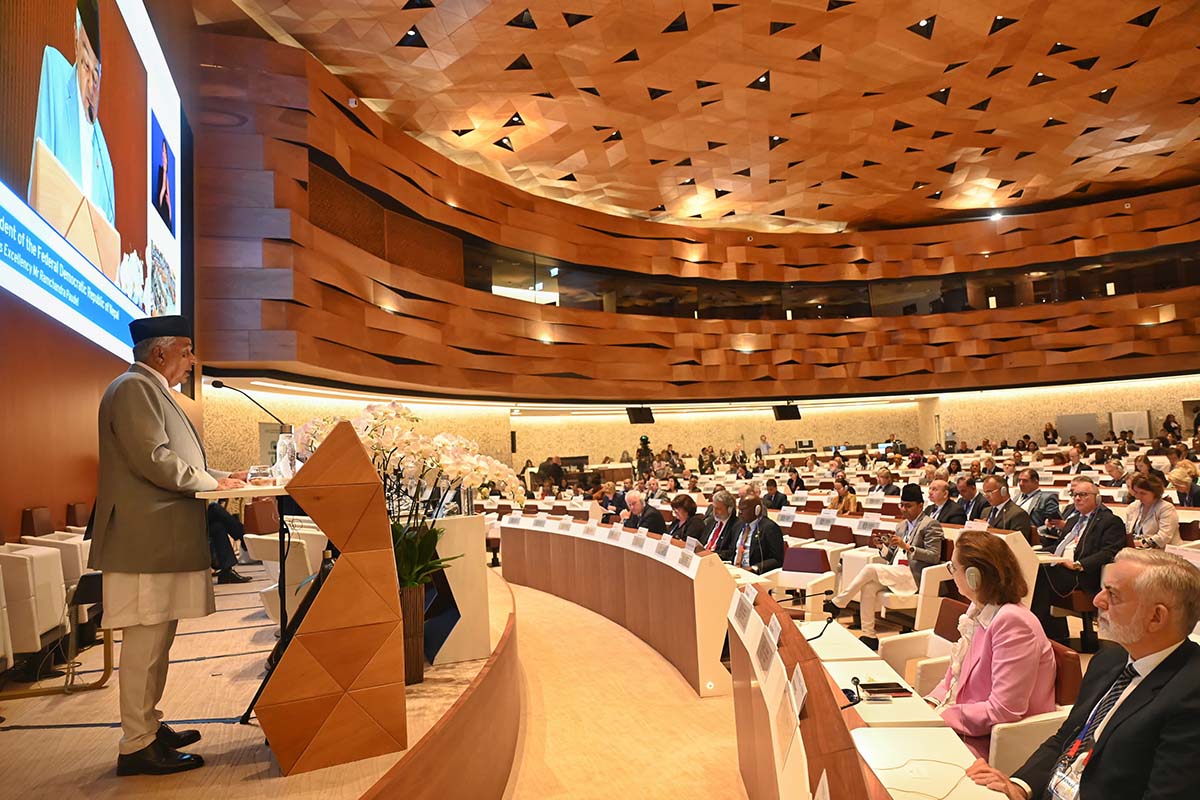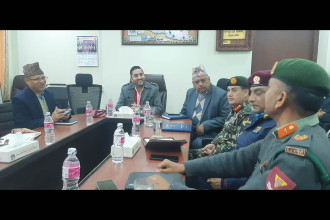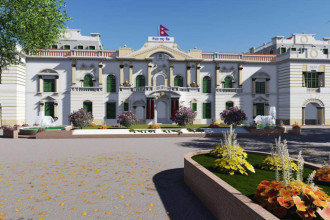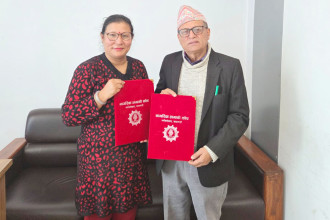
KATHMANDU: President Ramchandra Paudel has stated that Nepal's constitution fully embraces the principles of social justice, such as equal rights, equal opportunities, and equal treatment, which are at the heart of the International Labour Organisation (ILO).
"By participating in the Global Coalition for Social Justice, we reaffirm our commitment to social justice, our faith in multilateralism, and our intention to renew the social contract," he said in his keynote speech at the High-Level event of the 112th International Labour Conference and the Inaugural Session of the Global Coalition for Social Justice in Geneva, Switzerland today.
"Our collective endeavour to achieve sustainable peace through social justice is as relevant today as it was a century ago. When discussing sustainable peace, we must remember that it cannot be achieved without justice and economic gains for the underprivileged."
He stated that in the course of its political journey from monarchy to a federal democratic republic, Nepal has placed social justice at the heart of changes in labour, employment, and social security sectors. He said that Nepal's constitution has enshrined labour rights, the right to employment, the right to form trade unions, and the right to participate in collective bargaining as fundamental rights. "To implement these constitutional provisions, we have made legal and institutional arrangements such as the Labour Act, Trade Union Act, Employment Rights Act, Contribution-based Social Security Act, and National Employment Policy."
The Global Coalition for Social Justice, announced today, is our noble initiative and shared commitment to embrace social justice for all and in all areas, as envisioned by the ILO. Ensuring equality and justice for workers is our collective resolve.
He noted that people in all countries and societies of the world must receive justice, and they must be freed from hunger and fear. He said that since it is the world of work that has made the world prosperous, ensuring a fair share of the fruits of labour reaches the hands of workers is our shared responsibility; and this is social justice.
President Paudel also expressed his belief that the Global Coalition for Social Justice would continually inspire everyone to unite through social dialogue to maintain social harmony and tolerance and achieve economic development and prosperity.
On a different note, the President said, "As a resident of a mountainous country, I need to speak about climate change and its impacts on the lives of the Nepali people while discussing social justice at present and climate justice for future generations. Climate change has severely affected the supply of drinking water, crop patterns, biodiversity, and public health, pushing millions into marginal poverty and exacerbating stark inequality. Climate-induced disasters have compounded problems by severely affecting livelihoods and causing displacement of families and communities from their homelands.
"Therefore, I believe that adequate funding, compensation, and necessary technology should be provided to countries in order to ensure climate justice," the President said, "The global community, especially major emitters, should not fail to shoulder this responsibility. While talking about social justice, we must not forget to ensure climate justice globally." He noted that a significant amount of money that should be spent on development is being invested in deadly weapons for futile wars. The President said that the international community should reverse this path and mobilise resources for the prosperity of humanity. "Sustainable peace can be achieved through shared prosperity and a sense of global brotherhood, not through weapons."
Nepal is actively engaged in the 8.7 Alliance, standing against child labour, forced labour, and modern slavery and is also actively involved as a pathfinder country for employment and social security for a just transition. "Currently, we are implementing the Decent Work Programme (2023–2027) in Nepal, which includes employment, rights, and social dialogue."
Nepal is committed to implementing the 'Decent Work Agenda' in embracing the digital economy, care economy, and gig economy, he said while pointing out the need to assess the institutional, legal, and operational aspects of the ILO and reform them to address the challenges of the changing world of work.
Referring to the increasing trend of young people from developing countries seeking employment in labour destination countries, President Paudel appealed to all countries of the world to treat migrant workers with respect, treat them equally, and abide by the principle of decent work.
By RSS






